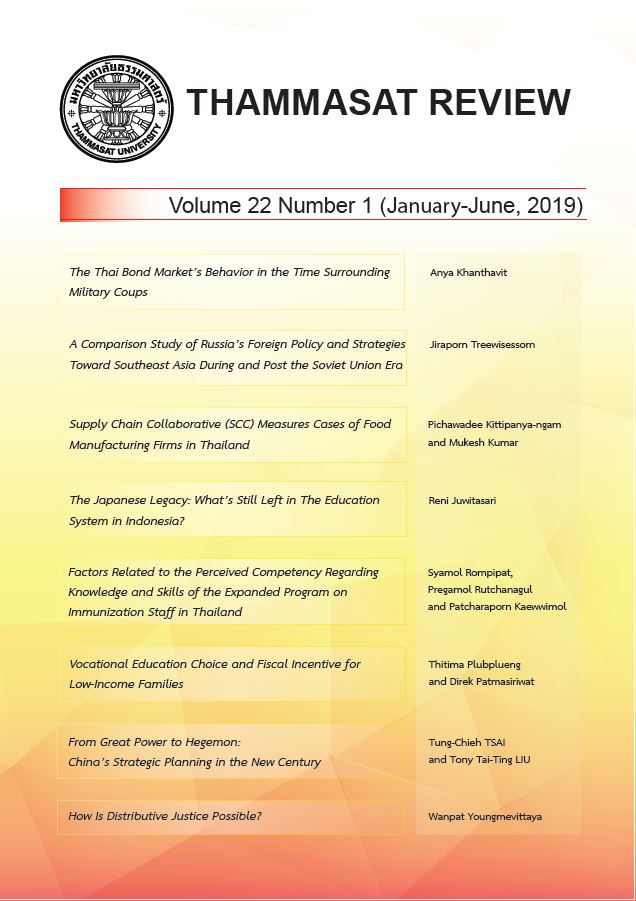Factors Related to the Perceived Competency Regarding Knowledge and Skills of the Expanded Program on Immunization Staff in Thailand
Keywords:
Competency, Knowledge, Skills, Factors, ImmunizationAbstract
Although the rate of vaccination coverage is rather high in Thailand, epidemics of emerging infectious diseases are constantly occurring. The aims of this descriptive correlational study were to identify the level of competency regarding the knowledge and skills of expanded program on immunization (EPI) staff in Thailand, to investigate the relationships among age, duration of work in EPI service, experience with EPI training, position, and the perceived competency of the EPI staff. Three hundred and twenty-six subjects were recruited using simple random sampling. The instruments were a demographic data questionnaire and a questionnaire of perceived competency regarding knowledge and skills validated by three experts. The reliability was 0. 97. Descriptive statistics, Spearman’ s rank correlation, Pearson’s product moment correlation, and a chi-square test were used to analyze the data. The results showed that the mean age of the EPI staff members was 40.04 years. The duration of work in EPI service averaged 7.14 years. Approximately 74.20 percent were nurses and 51.50 percent had experienced training.The overall mean score for perceived competency was at a high level (= 3.88, SD = 0.64). Reasoning that cannot vaccinate before appointment date (
= 4.19, SD = 0.75) were perceived at a high level, whereas knowledge about the herd immunity threshold of diseases was perceived at a moderate level and showed the lowest score (
= 3.47, SD = 0.90). The staff members that took part in the training program exhibited a significant difference in the perceived competency mean score when compared to the group not trained (P < 0.001). In addition, duration of work in EPI service and experience with EPI training was positively related to the perceived competency of the EPI staff (r = 0.163, r = 0.325 respectively). It is suggested that the training of EPI staff might be able to improve the level of competency and enhance the quality of EPI service provision in Thailand.
Downloads
Published
How to Cite
Issue
Section
License
The opinions and ideas expressed in all submissions published in Thammasat Review are solely that of the author(s) and do not necessarily reflect that of the editors or the editorial board.
The copyright of all articles including all written content and illustrations belong to Thammasat Review. Any individuals or organisation wishing to publish, reproduce and distribute a particular manuscript must seek permission from the journal first.






